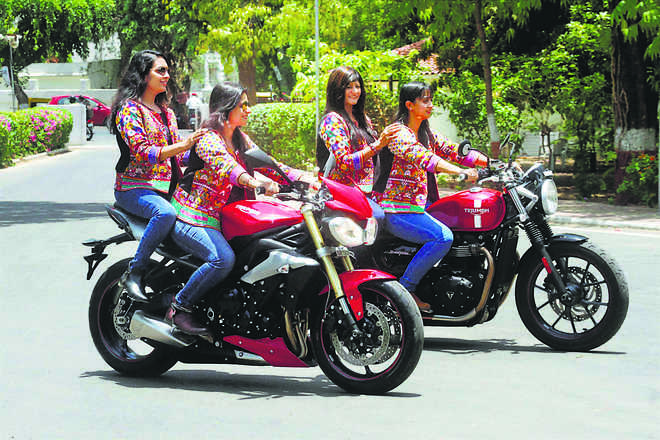
GENDER PARITY: A long way to go for women in India
SY Quraishi
Ex-CEC and distinguished fellow, Trivedi Centre for Political Data, Ashoka University
INDIA was one of the first countries to grant voting rights to women at the same time as men. This feat is impressive because the more advanced countries like the USA and the UK took 140 and 100 years, respectively, to grant equal voting rights to their women.
However, equal franchise for women has not transformed into equal levels of political participation. There are various socio-economic and political factors which hinder women's participation in the election process. These include traditional cultural barriers and social norms that are compounded by gender stereotypes, illiteracy, lack of awareness, lack of motivation, safety and security issues, including intimidation from males, and inability to step out of their roles as mothers, wives and homemakers.
India suffers from one of the lowest sex ratios in South Asia — 940 women for every 1,000 men. The sex ratio in the voters' list has been even lower, in some states less than 800. The Election Commission undertook the exercise of looking out for the missing women on a war footing in 2006, making gender ratio a principal element in the review of the health of our electoral rolls. This led to a phenomenal increase.
After registering women as voters, it is equally important to ensure that they do exercise their right to vote. Various measures have been taken to ensure women's participation, like separate queues for them, all-women polling stations in some areas, women staff in polling stations, women police force, etc.
Pre-election surveys were conducted to know the problems that discouraged women from participating in the electoral process and to identify areas where interventions were required. Concern for personal security (as women feared that polling booths attract anti-social elements), dependence on the approval of family elders, especially men, and lack of adequate toilet facilities were some of the factors that kept many women away from voting. Consequently, a communication targeted at family elders to break their resistance to the women of the family participating in polls and messages, allaying fears on security, were included in the overall voter education campaign.
The EC's brand ambassadors, celebrity folk singers like Sharda Sinha in Bihar and Malini Awasthi in UP, led millions of women to the polling booth, recording a phenomenal jump in female voters' turnout. The Systematic Voter Education for Electoral Participation (SVEEP) campaign was the flagship programme launched by the Election Commission during the 2014 General Election to educate and encourage the masses to exercise their right to vote. With its extensive focus on women, the result was a 10 per cent increase in the women turnout rate — from 55.82 per cent to 65.63 per cent! Moreover, in 16 states, women outnumbered their male counterparts, despite the adverse gender ratio. This resulted in the shrinking of the gender gap to an all-time low of 1.46 per cent.
The most important element of the political participation of women is their representation in the legislatures. This is abysmally low — a mere 12.15 per cent in the Lok Sabha and much lower in most Vidhan Sabhas. It is embarrassing when compared with conservative Muslim countries in South Asia like Afghanistan, Pakistan and Bangladesh which have a very high female representation, thanks to the liberal reservation. A great consolation is the reservation for women in the Panchayati Raj institutions. From 33 per cent in 1993 to 50 per cent in 2009, this is one progressive step that the Indian Parliament has taken which must be applauded. A number of states have on their own introduced 50 per cent reservation for women in municipalities and corporations.
Regarding state Assemblies and the Parliament, a Bill for women's reservation is pending with the Parliament, which has been debated ad nauseum for the past several years, but is yet to be passed.
Giving equality to women is essential if we are to move towards a truly inclusive democracy. Currently, we fall too short on this measure. It is a national shame that India ranks 125 out of 159 countries in the Gender Inequality Index. The best way to achieve greater gender parity is through the political empowerment of women. The reluctance of the male-dominated Indian political leadership to provide fair representation to women in the legislature is a matter of concern. Mandatory reservations apart, they are reluctant to give tickets to female candidates. As a result, hardly 10 per cent of the candidates are female. The excuse given is that the 'winnability' of women candidates is low. This is a lie. The fact is that throughout India's electoral history, the winnability of women has always been higher than men.
International Women's Day is a good occasion to reflect on the status of women in the country. Political empowerment of women must be our top priority. Women must be encouraged to both vote as well as contest elections. This empowerment can only be achieved if there's a sense of urgency and a strong and supportive political will.



























